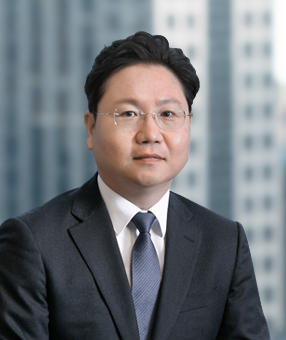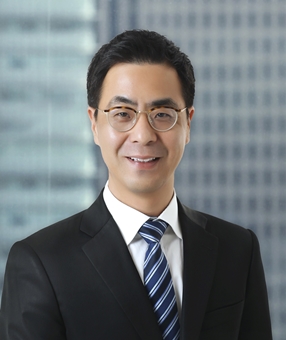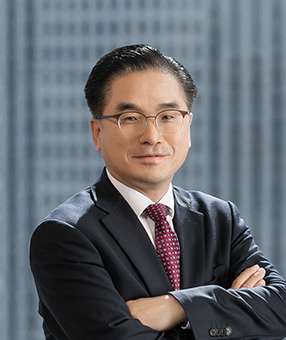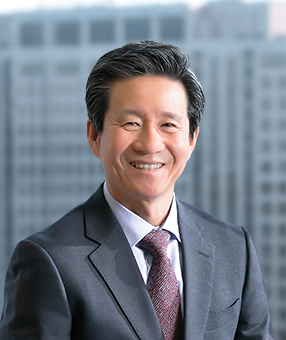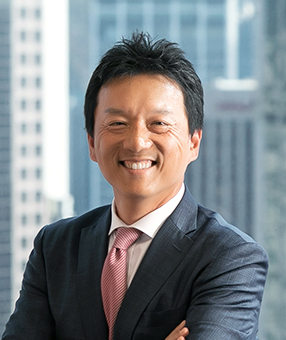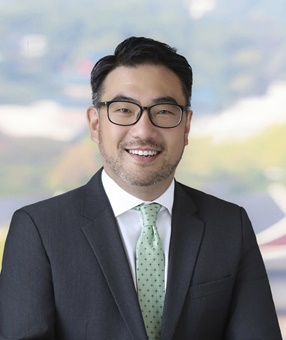Yoon Seok-yeol, the presidential candidate from the conservative People Power Party, won the 20th presidential election. Notably, President-Elect Yoon has repeatedly expressed his position that the semiconductor industry needs to be viewed from a national security perspective. Thus, we expect that the new administration will adopt policies that actively promote the semiconductor industry.
President-Elect Yoon pledged to build a powerful semiconductor nation.
President-Elect Yoon previously proclaimed that he “will build a truly powerful semiconductor nation.” According to his manifesto, the 4th industrial revolution, acceleration of 5G/6G, and expansion of digital or untact (contactless) economies spurred an exponential increase in worldwide demands for semiconductors which, in turn, intensified the global hegemonic competition (e.g., semiconductor supercycle). As such, President-Elect Yoon notes that other countries such as the United States, China, Europe, Japan, and Taiwan are approaching the semiconductor industry from an economic security perspective requiring a wide range of support.
In particular, President-Elect Yoon pledged to maintain a “Super-Gap” (the term Samsung Electronics coined, referring to a substantial gap between its dominant lead and other competitors) in the memory sector, overtake leading countries in the foundry sector, and foster next-generation semiconductor industries. President-Elect Yoon further pledged to provide effective support for the semiconductor industry such as expanding tax deductions for R&D and facility investments, increase the number of semiconductor and supporting technology professionals by 100,000, and strengthen trade cooperation and alliances with major countries to assist the semiconductor industry and reorganize relevant supply chains.
In light of his pledges to provide support at the national level to advance the semiconductor industry to a super-gap new growth industry, as well as the global phenomenon exhibiting intensified hegemonic competition, we expect that issues associated with the semiconductor industry will be addressed by the new administration.
The Presidential Transition Committee consists of numerous industry policy experts.
Following its inauguration on March 18, 2022, the Presidential Transition Committee is expected to proceed with the preparation of the Presidential inauguration: receiving reports from various government ministries, announcement of a plan to reorganize the government structure, announcement of candidates for the Prime Minister and members of the Cabinet, and disclosing the top 100 national agendas. While Economy No. 2 Sub-Committee will mainly handle policies related to the semiconductor industry, Planning & Coordination Sub-Committee as well as Diplomatic Security Sub-Committee will also provide inputs as the semiconductor industry is a core strategic industry critical to national security. In addition, if policies related to the semiconductor industry are included in the top 100 national agendas, each of the relevant ministries under the new administration will establish detailed implementation plans.
As the members of Economy No. 2 Sub-Committee (i.e., Professor Chang-Yang Lee, Professor Yun-Jong Wang, and Deputy Minister for Energy and Resources Young-Joon Joo at the Ministry of Trade, Industry and Energy) are well known for their experience and insight, the Presidential Transition Committee is expected to set forth a path to create reasonable and effective policies for the improvement of the semiconductor industry.
The semiconductor industry will be viewed as an economic security issue and a core strategic industry.
While the Presidential Transition Committee (which contains numerous semiconductor industry experts) and the Cabinet of the new administration will establish more detailed policies, we would like to share some of our expectations on potential changes based on President Elect Yoon’s pledges and the composition of the Presidential Transition Committee members.
Domestically, to stabilize and internalize supply chains of core strategic industries, the new administration is expected to strongly promote policies supporting the semiconductor industry. Further, to resolve the worldwide shortage of semiconductors and to establish the most stable supply chain within the country, the new administration is also expected to not only support manufacturing capabilities of memory chips and foundries, but also strengthen various supports for corporate investments into facilities and R&D. In the meantime, the K-Semiconductor Strategies and the establishment of the Yongin Semiconductor Cluster Complex,1 which were announced by the current administration will continue without significant change, and the lower regulations of the Special Measure Act on Reinforcement and Protection of National Advanced Strategic Industry’s Competitiveness (to be enforced starting from August 4, 2022) would be amended.
In addition to supporting the expansion of memory chip production, where Korea has had a strong advantage, the new administration is expected to continue providing support for AI semiconductors for digital conversion in the system semiconductor (non-memory semiconductor), power semiconductors necessary for green energy, and back-end process industries such as packaging. Thus, we will closely monitor whether the establishment of the semiconductor ecosystem (e.g., practical infrastructure support, the availability of key semiconductor personnel, prompt land acquisition, efficient licensing and permitting that enable timely investment, and policies on materials, parts, and equipment) will make notable progress.
Globally, the new administration is expected to approach the semiconductor industry from a national and economic security viewpoint. Given Japan’s restriction on the export of semiconductor materials to Korea, the exclusion from the whitelist in 2019, and the current conflict between the United States and China, there is a perception that the semiconductor industry is at the forefront of economic wars, directly related to the survival of Korea. Based on this perception, the decision-making governance on economic security is expected to be newly reorganized at the national level.
Against this backdrop, the new administration is expected to seek co-prosperity with the US by responding to the international reorganization of its semiconductor supply chain based on the Korea-US technology alliance. However, as Samsung Electronics and SK Hynix have production bases in China, we expect that the new administration will also make efforts to maintain the supply chain in China for some time. However, in anticipation of the supply chain moving out of China and improved relations between Korea and Japan, we will need to monitor how the Korea-Japan cooperation will play out in the global semiconductor supply chain.
Taking into account external factors (e.g., the ongoing hegemonic competition between the United States and China, heightened international export controls, sanctions against Russia, etc.), the new administration will try to minimize any negative impact on the Korean economy and pursue a strategic policy based on the country’s interests in mind.
We have analyzed the new administration’s potential policies on the semiconductor industry in a comprehensive manner based on President-Elect Yoon’s manifesto. However, as the impact on stakeholders will vary depending on specific policy directions of the new administration, we will continue to provide you with updates, including not only on the policies themselves, but also the legal issues to be considered (e.g., matters to be considered in connection with export controls, tax laws, customs laws enacted/amended for the purpose of promoting the semiconductor industry; anticipated changes in EHS regulations in connection with the semiconductor industry; and anti-competition issues that may arise in the semiconductor industry or associated industries).
Related Topics





